BABISH
recipes
community
cookware
cookbook
contact
JOIN
KIMBAP & LUNCHBOX INSPIRED BY SQUID GAME SEASON 2
cook:
1 h 15 min

305,903 views a vegetable-forward gimbap with traditional fillings, and a bento-style dosirak complete with sweet soybeans, fried fish sausage, crispy anchovies, and a sunny-side-up egg. No life-threatening games required.
US
original
metric
INGREDIENTS
DIRECTIONS
INGREDIENTS

For the Gimbap

2 cups short grain rice

water, as needed

kosher salt, to taste

toasted sesame oil, as needed

4 square sheets gim (roasted seaweed, also labeled as nori)

2 tsp vegetable oil, divided

2 eggs, well beaten
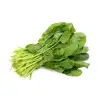
8 oz spinach

2 garlic cloves, minced

1 tsp soy sauce

1 yellow pickled radish (Danmuji)

1 medium carrot, peeled and julienned

1 English cucumber, julienned

¼ tsp sesame oil

1 sheet fish cake or imitation crab sticks

2 strips braised Korean burdock root

For the Dosirak

For the Beans

1 cup dried black soybeans

¼ cup soy sauce

2 tbsp mirin

2 tbsp sugar

2 tbsp Korean rice syrup or corn syrup

For Assembly

1 cup short grain rice

1 tbsp vegetable oil

Korean fish sausage, sliced into half inch rounds

1 egg
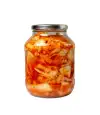
kimchi, as desired

¼ cup anchovies
TOOLS

Babish measuring cups and spoons set

Babish mixing bowl

Babish saucepan

rice cooker (with sushi rice setting)

rice paddle or wooden spoon

fine mesh sieve

Babish cutting board
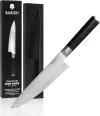
Babish Chef’s knife
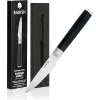
Babish paring knife
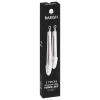
Babish tongs
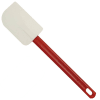
rubber spatula

resealable container

Babish nonstick skillet
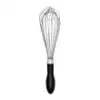
Babish whisk

fork

bamboo mat
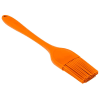
basting brush

paper towels or clean kitchen towel
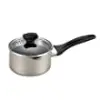
small metal lunchbox or bento style tin

serving spoon

silicone baking mat or parchment, optional

food prep gloves, optional
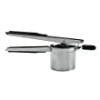
rice mold or small bowl, optional
DIRECTIONS
1.
For the Gimbap
1.
Add the rice to the bowl of a rice cooker and thoroughly rinse until the water runs mostly clear. Add 2 ¼ cup water and salt to the rinsed rice. Set the rice cooker to the sushi rice setting. Once the rice is fully cooked, transfer it to a bowl and season it with a drizzle of toasted sesame oil. Cover and set aside. The rice should still be warm when rolling the gimbap, so keep that in mind when preparing it.

2 cups short grain rice

water, as needed

kosher salt, to taste

toasted sesame oil, as needed

rice cooker (with sushi rice setting)

Babish measuring cups and spoons set

Babish mixing bowl
2.
In a 10-inch nonstick skillet over medium heat, add 1 tsp of vegetable oil. While the oil is heating, add a generous pinch of salt to the eggs and whisk to combine. Be sure the egg mixture is fully homogeneous. Add the eggs to the skillet and swirl the mixture to push it to the outside edges of the pan. Cook the eggs slowly to prevent browning. Once the bottom has set, carefully flip the eggs, keeping the circle intact. Remove it from the heat and let the other side cook with the residual heat from the pan. After 1-2 minutes, transfer the egg circle to a cutting board and cut into thin strip. Set aside.

1 tsp vegetable oil, divided

2 eggs, well beaten

Babish nonstick skillet

Babish measuring cups and spoons set

Babish whisk

rubber spatula

Babish cutting board

Babish paring knife
3.
In the same skillet over medium heat, add ½ tsp vegetable oil, chopped garlic and a pinch of salt. Saute for 30 seconds, then add the spinach and soy sauce. Cover the pan with a lid and cook for 2 minutes, or until the spinach has completely wilted. Transfer the spinach to a bowl and set aside.

½ tsp vegetable oil, divided

2 garlic cloves, minced

8 oz spinach

1 tsp soy sauce

Babish nonstick skillet

Babish measuring cups and spoons set

rubber spatula

Babish mixing bowl
4.
In the same skillet over medium heat, add ½ tsp vegetable oil, carrots and a pinch of salt. Saute for 4-5 minutes, or until the carrots slightly soften and a bit of water is released. Transfer the carrots to a bowl and set aside.

½ tsp vegetable oil, divided

1 medium carrot, peeled and julienned

Babish measuring cups and spoons set

Babish nonstick skillet

Babish mixing bowl

Babish Chef’s knife

Babish cutting board
5.
Slice the cucumber into ½ inch long strips. Set aside. If needed, cut the imitation crab to match the size of the cucumber. Set aside. Slice the yellow radish into strips to match the cucumber and crab. Set aside.

1 English cucumber, julienned

1 sheet fish cake or imitation crab sticks

1 yellow pickled radish (Danmuji)

Babish cutting board

Babish Chef’s knife
6.
Place a kimbap or sushi rolling mat on a work surface. Set a sheet of nori on top of it.

1 square sheets gim (roasted seaweed, also labeled as nori)

bamboo mat
7.
Place ¾ to 1 cup of cooked rice on the seaweed sheet and use both hands to spread it evenly all over, leaving about one or two inches of the sheet exposed at the top edge. Dot a few rice grains along the top edge (they will help it stick together later).

1 cup short grain rice

bamboo mat
8.
Arrange the fillings in the center of the rice: cucumber stick, yellow radish stick, burdock strip, ¼ of the carrots, ¼ of the spinach, imitation crab stick, ¼ of the egg.

English cucumber, julienned

yellow pickled radish (Danmuji)

2 strips braised Korean burdock root

medium carrot, peeled and julienned

spinach

fish cake or imitation crab sticks

eggs, well beaten

4 square sheets gim (roasted seaweed, also labeled as nori)

bamboo mat
9.
Roll the bamboo mat up and away from you, curling the seaweed sheet and rice around the fillings; use the fingers of both your hands to hold the filling in place as you roll with your thumbs. Secure the roll with the exposed flap of seaweed sheet. Once the roll is sealed, gently squeeze, pressing gently on the top and sides, to compress the roll slightly and seal the edge.

4 square sheets gim (roasted seaweed, also labeled as nori)

bamboo mat
10.
Repeat with the remaining seaweed sheets.
11.
Lightly brush the tops of the seaweed with sesame oil, then place 2 rolls next to each other. Slice the rolls into ½ inch thick pieces. If the knife has any resistance, rub a bit of sesame oil on it to help the knife glide through easier.

¼ tsp sesame oil

basting brush

Babish paring knife
12.
Repeat with the remaining rolls and serve immediately.
13.
For the Dosirak
1.
For the Beans
1.
Add the beans to a medium mixing bowl and rinse several times to remove any dust or dirt. Cover the beans with 2 cups of cold water and soak for 2-4 hours, or until the beans are somewhat softened.

1 cup dried black soybeans

Babish mixing bowl
2.
Pour the beans and soaking liquid into a medium saucepan. Bring to a boil and cook, uncovered, over medium high heat for about 20 minutes, or until most of the liquid has evaporated. Stir frequently to ensure the beans do not stick to the bottom. Add the soy sauce, rice wine, and sugar. Reduce the heat to medium and boil until the sauce is reduced to just a few tbsp and the beans are tender, but still firm, about 45 minutes. Add the rice syrup and stir continuously to coat the beans and create a glossy look.

dried black soybeans

¼ cup soy sauce

2 tbsp mirin

2 tbsp sugar

2 tbsp Korean rice syrup or corn syrup

Babish saucepan

Babish measuring cups and spoons set

rubber spatula
3.
Transfer the beans into a resealable container. Cover with a lid and refrigerate until cool.

For the Beans

resealable container
4.
For the Assembly
1.
Add the rice to the bowl of a rice cooker and thoroughly rinse until the water runs mostly clear. Add 1 ¼ cup water and salt to the rinsed rice. Set the rice cooker to the sushi rice setting. Once the rice is finished cooking, fluff it with a rice paddle and put it on the “keep warm” setting until ready to serve.

1 cup short grain rice

water, as needed

kosher salt, to taste

rice cooker (with sushi rice setting)

rice paddle or wooden spoon
2.
In a medium skillet over medium high heat, add half of the vegetable oil. Once the oil is shimmering, add the slices of fish sausage. Cook for 2-3 minutes, or until the sausage is golden brown. Flip and repeat until the other side is golden brown. Remove the pan from the heat and transfer the fish sausage to a small plate.

½ tbsp vegetable oil

Korean fish sausage, sliced into half inch rounds

Babish nonstick skillet

rubber spatula

Babish measuring cups and spoons set
3.
In the same skillet over medium heat, add the anchovies. Stir and toss frequently to prevent the anchovies from burning. Cook for 1-2 minutes, or until the anchovies are fragrant and lightly toasted. Remove the pan from the heat and set aside.

¼ cup anchovies

Babish nonstick skillet

basting brush
4.
In a small nonstick skillet over medium high heat, add the remaining vegetable oil. Once the oil is shimmering, crack the egg into the skillet. Cook the egg for 3-4 minutes, or until the edges are slightly lacy and crispy, the whites are fully cooked and the egg yolk is still runny. Remove the pan from the heat and set aside.

½ tbsp vegetable oil

1 egg
Unlock this recipe

Welcome to the...
Babish Culinary Universe
Get instant access to hundreds of written recipes, connect with a community eager to share their cooking triumphs and mishaps, and find inspiration for your next meal.
Try it out for a month free, then just $10/year
RELATED RECIPES